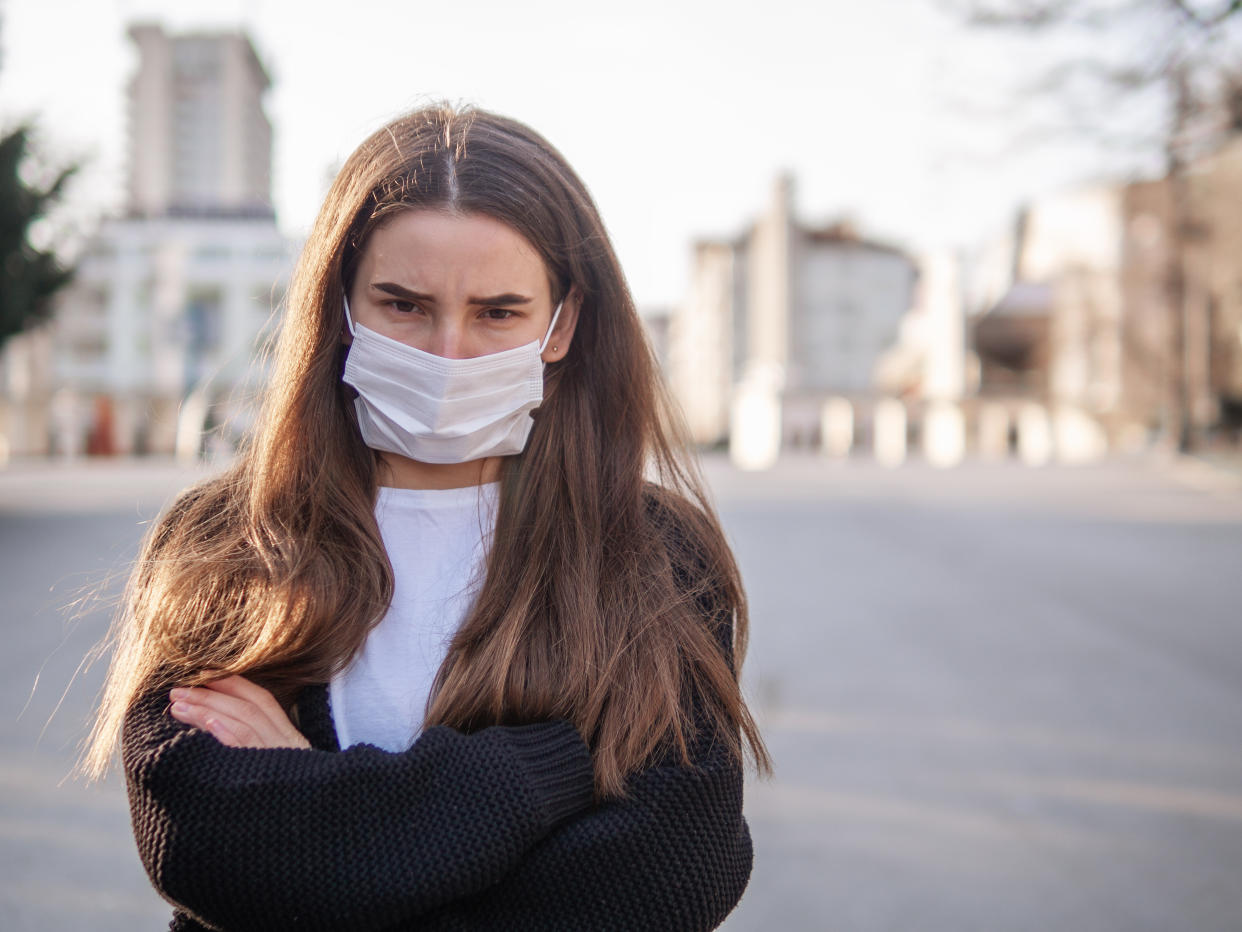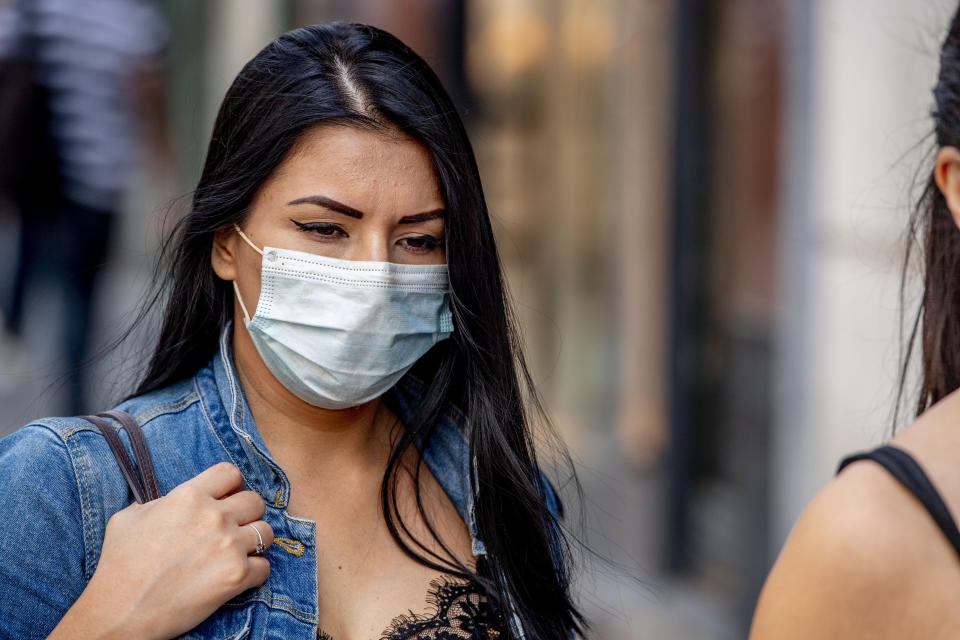Coronavirus anxiety 'is fuelling anger' due to medical shortages and 'stay at home' message

Anxiety over the coronavirus outbreak may be fuelling anger, research suggests.
With the global death toll exceeding 610,000, many are anxious they or their loved ones may catch the infection.
Read more: Coronavirus vaccine 'stimulates antibody and T-cell response'
Cutbacks have also left many fearing for their jobs, with the UK economy shrinking by a fifth during lockdown.
With social media an outlet to the outside world while we were told to stay at home, scientists from China’s Nanyang Technological University looked at more than 20 million tweets from over 170 countries.
Nearly 30% of the coronavirus-related tweets posted on 12 March, the day after the World Health Organization (WHO) declared it a global health emergency, expressed anger.

Fear ‘morphs into resentment and anger’
The scientists first looked at tweets posted in January, the start of the outbreak.
They tracked four words: Wuhan (the Chinese city where the infection was identified), corona, nCov (an abbreviation of the virus strain) and COVID (the respiratory disease that can be triggered by the coronavirus).
Tweets were then categorised according to the emotions they contained – anger, fear, joy or sadness.
Results, published in the journal JMIR Public Health & Surveillance, revealed nearly 60% of coronavirus-related content posted in January expressed fear or uncertainty.
Read more: What is the coronavirus treatment being hailed a 'breakthrough'?
These commonly mentioned “first case” or “outbreak”, suggesting anxiety over the unprecedented infection.
Many of the early tweets also expressed xenophobia, including phrases like “racist” and “Chinese people”.
As the outbreak intensified in March, social media reactions transformed into unrest regarding the shortages in antibody tests and medical supplies. Antibody tests indicate whether an individual may have overcome the infection.
Tweets also expressed strong feelings about the rising death toll, using phrases like “test shortages”, “stay home” and “uncounted”, along with many swear words.
The scientists believe officials should have done more to reassure the public’s fears.
“The rapid evolution of global COVID-19 sentiments within a short period of time points to a need to address increasingly volatile emotions through strategic communication by government and health authorities, as well as responsible behaviour by netizens before they give rise to ‘unintended outcomes’,” said study author Professor May Lwin.
“If such overbearing public emotions are not addressed through clear and decisive communication by authorities, citizen groups and social media stakeholders, there is potential for the emergence of issues such as breeding mistrust in the handling of the disease, and a belief in online falsehoods that could hinder the ongoing control of the disease.”
Perhaps reassuringly, tweets of gratitude and joy are on the rise, with the latter nearly equalling fearful posts in May. Some social media users talked about national pride and community spirit.
Read more: 'Broken heart syndrome' on the rise during coronavirus pandemic
They also used phrases like “good news” and “feel good” as a growing number of people recover from the illness; more than 8.3 million globally.
The scientists plan to follow up their research by looking at emotional trends in specific countries.
This is not the first time experts have warned the pandemic may impact our emotions.
Professor Francois Balloux, from University College London, told his 48,000-plus Twitter followers: “I am concerned about the level of fear in the population.
“I don't believe fear is ever healthy but I worry more about what will happen when it recedes.
“Fear doesn't just fade away, it morphs into resentment and anger.”
Scientists from all over the world have also warned the pandemic may have a “profound” and “pervasive” impact on people’s mental health for some time to come.
Beyond the loss of life and economic consequences of #COVID19, I am concerned about the level of fear in the population. I don't believe fear is ever healthy but I worry more about what will happen when it recedes. Fear doesn't just fade away, it morphs into resentment and anger.
— Prof Francois Balloux (@BallouxFrancois) July 10, 2020
What is the coronavirus?
The coronavirus is one of seven strains of a virus class that are known to infect humans.
Others cause everything from the common cold to severe acute respiratory syndrome (Sars), which killed 774 people during its 2002/3 outbreak.
Since the coronavirus outbreak was identified, more than 14.7 million cases have been confirmed worldwide, according to Johns Hopkins University.
The coronavirus mainly spreads face to face via infected droplets expelled in a cough or sneeze.
There is also evidence it can spread in faeces and survive on surfaces.
The infection itself has no “set” treatment, with most patients naturally fighting it off.
The steroid dexamethasone is being used in hospitals throughout the UK to reduce the risk of death among patients on ventilators or oxygen.
Officials urge people ward off infection by washing their hands regularly and maintaining social distancing.



